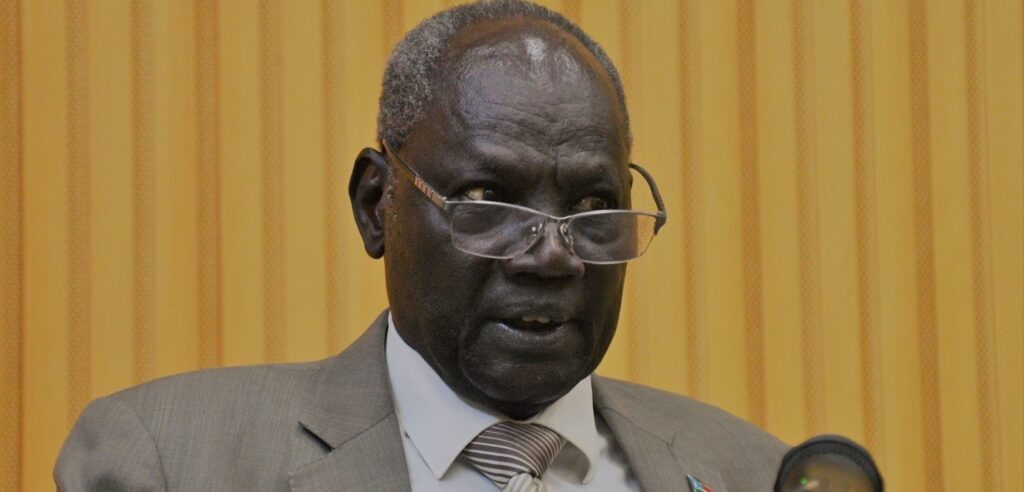Lakes State member of the Transitional National Legislative Assembly (TNLA) Bol Joseph Agau has raised the alarm over the alleged misuse of public funds by officials in the Ministry of Information, Communication, Technology, and Postal Services.
Agau claimed in the House on Monday that over US$100,000 was approved and released by the ministry for the burial of the daughter of Michael Makuei Lueth, the National Minister for Information and Telecommunication.
“The executive director in the ministry addressed a letter to the undersecretary requesting US$125,000 for the funeral of the minister’s daughter. This money was approved the same day and paid in full by the South Sudan International Gateway, a subsidiary of the National Revenue Authority (NRA),” Agau stated.
He further claimed to possess evidence of the corrupt activities within the information ministry, including the hiring out of government land with the proceeds going into individual’s pockets.
Speaker Jemma Nunu Kumba urged Lawmaker Agau to formalize his concerns in writing and submit them to the House for further consideration.
“You need to put the motion into writing so that it goes through the right procedure before it goes to the House for deliberation,” Kumba advised.
Efforts to reach the Ministry of Information, Communication, Technology, and Postal Services for comment were not immediately successful.
South Sudan’s worsening economic situation continues to impact civil servants and members of the Armed Forces, who have gone without pay for nearly a year as the local currency plummets against the US dollar.
According to reports, South Sudan faces considerable governance challenges; it regularly ranks at or near the bottom of international corruption indices. Corruption is reportedly systemic across all levels of government and pervades nearly every economic sector, and perpetrators enjoy widespread impunity. As such, it takes a heavy toll on the populace by diverting the wealth from the country’s extensive oil reserves and taxes into private pockets instead of public service provision or gross fixed capital formation.




